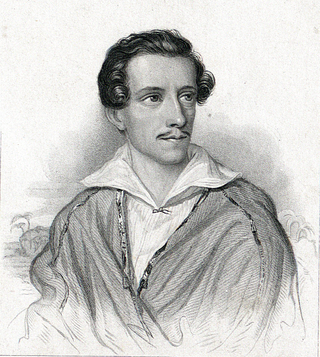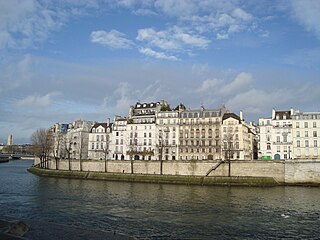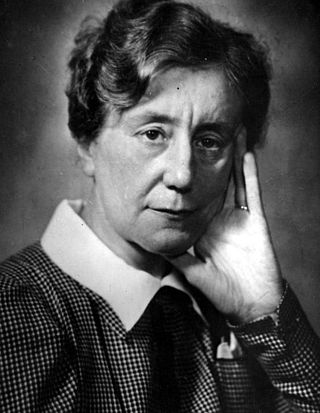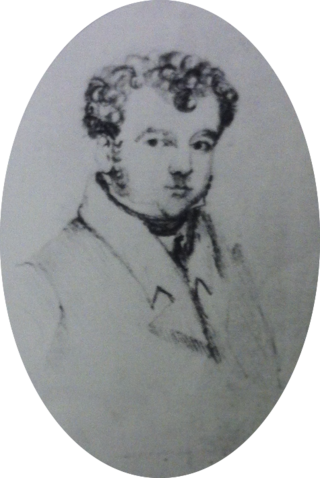Related Research Articles

Adam Bernard Mickiewicz was a Polish poet, dramatist, essayist, publicist, translator and political activist. He is regarded as national poet in Poland, Lithuania and Belarus. He also largely influenced Ukrainian literature. A principal figure in Polish Romanticism, he is one of Poland's "Three Bards" and is widely regarded as Poland's greatest poet. He is also considered one of the greatest Slavic and European poets and has been dubbed a "Slavic bard". A leading Romantic dramatist, he has been compared in Poland and Europe to Byron and Goethe.

Adam Jerzy Czartoryski, in English known as Adam George Czartoryski, was a Polish nobleman, statesman, diplomat and author.

Juliusz Słowacki was a Polish Romantic poet. He is considered one of the "Three Bards" of Polish literature — a major figure in the Polish Romantic period, and the father of modern Polish drama. His works often feature elements of Slavic pagan traditions, Polish history, mysticism and orientalism. His style includes the employment of neologisms and irony. His primary genre was the drama, but he also wrote lyric poetry. His most popular works include the dramas Kordian and Balladyna and the poems Beniowski, Testament mój and Anhelli.

Pan Tadeusz is an epic poem by the Polish poet, writer, translator and philosopher Adam Mickiewicz. The book, written in Polish alexandrines, was first published by Aleksander Jełowicki on 28 June 1834 in Paris. It is deemed one of the last great epic poems in European literature.
Romanticism in Poland, a literary, artistic and intellectual period in the evolution of Polish culture, began around 1820, coinciding with the publication of Adam Mickiewicz's first poems in 1822. It ended with the suppression of the January 1863 Uprising against the Russian Empire in 1864. The latter event ushered in a new era in Polish culture known as Positivism.

The Three Bards are the national poets of Polish Romantic literature. The term is almost exclusively used to denote Adam Mickiewicz (1798–1855), Juliusz Słowacki (1809–1849) and Zygmunt Krasiński (1812–1859). Of the three, Mickiewicz is considered the most influential and Krasiński the least.

Stanisław Egbert Koźmian was a Polish writer, poet and translator. He is now best known for translating the works of William Shakespeare into Polish.

Klementyna Hoffmanowa, born Klementyna Tańska was a Polish novelist, playwright, editor, translator, teacher and activist. She was the first woman in Poland to support herself from writing and teaching, as well as one of Poland's first writers of children's literature.

The Polish Library in Paris is a Polish cultural centre of national importance and is closely associated both with the historic Great Emigration of the Polish élite to Paris in the 19th-century and the formation in 1832 of the Literary Society, later the Historical and Literary Society. The Library was founded in 1838 by Adam Jerzy Czartoryski, Julian Ursyn Niemcewicz and Karol Sienkiewicz, among others. Its first task was to safeguard all surviving books, documents, archives and treasures of national significance. It has become a historical and documentary resource open for the use of Poles and other researchers and visitors. The Library houses three museums related to significant Polish artists: the Salon Frédéric Chopin, the Adam Mickiewicz Museum and the Bolesław Biegas Art collection. UNESCO's Memory of the World Register rates it as an institution unique of its kind.

Matilda Ashurst Biggs was a member of the notable 19th-century British family of reformers, the Ashursts. Their circle of radicals was nicknamed the "Muswell Hill Brigade" after the family homestead. Alongside her family, Matilda Biggs promoted progressive domestic and foreign causes, especially working for women's equality in Britain and Italian unification.

Elizabeth Ashurst Biggs was an English novelist and advocate for women's rights and anti-slavery.

Theodore de Korwin Szymanowski was a Polish nobleman and impoverished landowner, an economic and political theorist writing in French. He was the author in 1885 of a strikingly original economic blueprint for a proto Unified Europe and for the abolition of African slavery. He was also a Polish poet.

Rosa Bailly, known also as Rosa Dufour-Bailly and Aimée Dufour was a French teacher, journalist and writer closely tied throughout her professional life to the cause of Poland and its literature. She was also a poet.

The Historical and Literary Society, a successor organisation to the Literary Society, was founded in Paris in 1832 as a Polish political and cultural association by a group that included Alexandre Walewski, Napoleon's natural son and future minister of foreign affairs of Napoleon III. Its founding chairman was Adam Jerzy Czartoryski and from 1861, his son, Wladyslaw Czartoryski. The society's original aim was "to collect and publicise materials relating to the former Kingdom of Poland, its current circumstances and future prospects, in the context of maintaining and encouraging in the opinion of nations the sympathy they have directed towards Poland.

Maria Dorota Leopoldyna Czapska was a Polish writer, essayist and historian. She was born in Prague to Count Jerzy Hutten-Czapski (1861–1930), and Jozefina Thun-Hohenstein (1867–1903), and grew up in Przyłuki, the family estate near Minsk. Her younger brother was Józef Czapski, and her relatives included Counts Emeryk Hutten-Czapski, Emeryk August Hutten-Czapski, and Karol Hutten-Czapski.

Karol Aleksander Boromeusz Hoffman was a Polish political writer, historian, lawyer and publisher.

Jeremiah Owen was a mathematician, naval architect and Chief Metallurgist to the Admiralty during the first half of the nineteenth century. Owen took part in the debates over the professionalization of naval architecture in the Royal Navy and was active in campaigns for Polish human rights in the 1830s. He his chiefly known for his scientific work on metals in the design of naval vessels.
Maude Ashurst Biggs born Maude Biggs was a British translator and Polish nationalist.
Association of the Polish People was a clandestine association founded in 1835 with the aim of establishing an independent Polish republic. The group's revolutionary nature involved various Polish radicals as members and partners, some of whom were actively operating until 1848.

Thadée Gasztowtt, also known as Seyfeddin Bey, was a French-born Ottoman, Turkish, and Polish diplomat, revolutionary, historian, and journalist of Lithuanian descent. An ardent Turkophile, he adamantly advocated for the revitalisation of Ottoman-Polish relations and was a staunch supporter of the Ottoman Empire, viewing them as Poland's only historical ally. As the unofficial representative of Polish émigrés, he regularly encouraged Poles in Europe, especially Francophone Poles, to support the Ottoman Empire.
References
- ↑ The Literary Association of the Friends of Poland was also known as the Polish Association (Campbell 1849 , p. 101 and Tyler 1851 , pp. 283, 284)
- ↑ Żurawski vel Grajewski, Radosław. Działalność księcia Adama Jerzego Czartoryskiego w Wielkiej Brytanii (1831-1832), Warszawa: "Semper" 1999.
- ↑ Literary association of the friends of Poland 1832, p. 35.
- ↑ Literary association of the friends of Poland 1832, p. 320.
- ↑ Literary association of the friends of Poland 1832, p. 323,413.
- ↑ Zurawski vel Grajewski, R. Księżna Dorothea Lieven wobec Polski i Polaków: pojedynek za kulisami wielkiej dyplomacji, Warszawa: Wydawnictwo DiG 2005.
- ↑ Spain, Jonathan (23 September 2004). "Biggs, Matilda Ashurst (1816/17–1866), campaigner for women's rights and supporter of Italian independence" . Oxford Dictionary of National Biography . Vol. 1 (online ed.). Oxford University Press. doi:10.1093/ref:odnb/59172. ISBN 978-0-19-861412-8.(Subscription or UK public library membership required.)